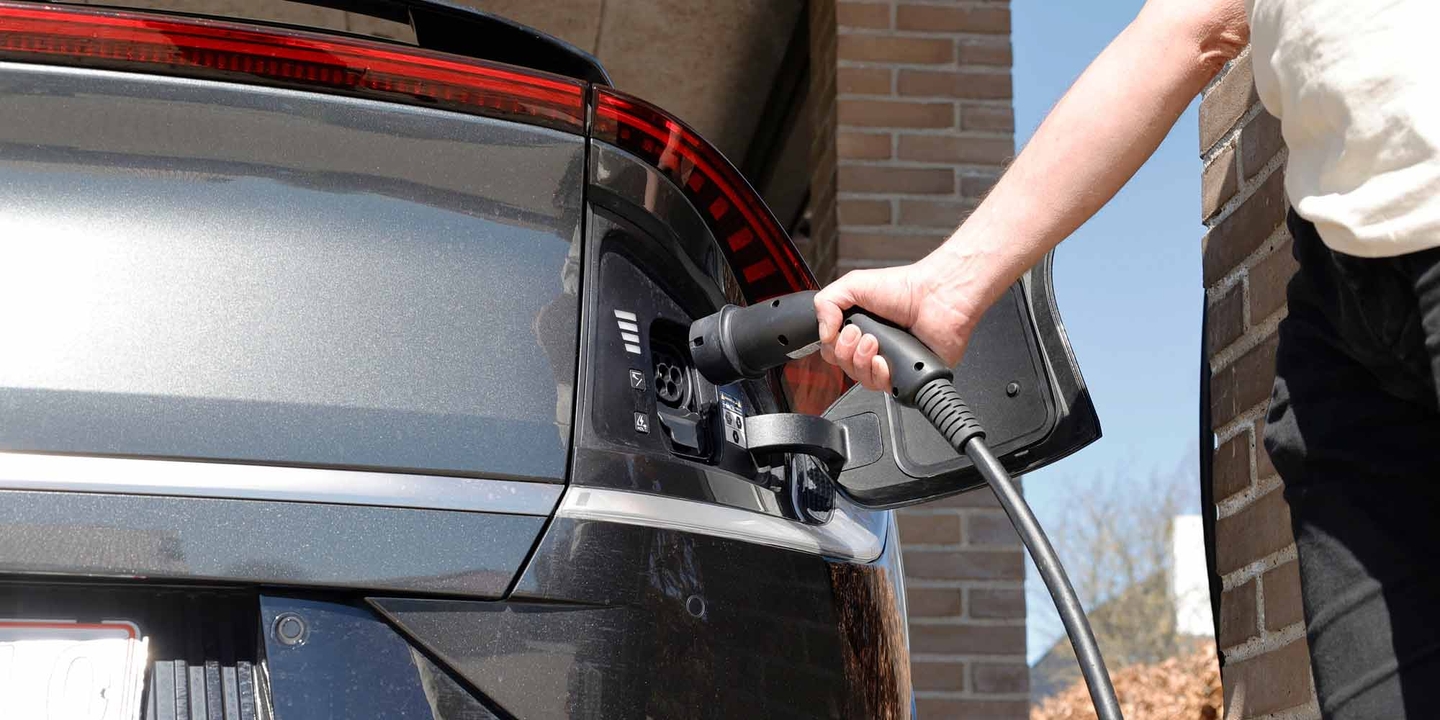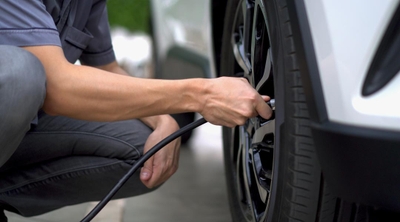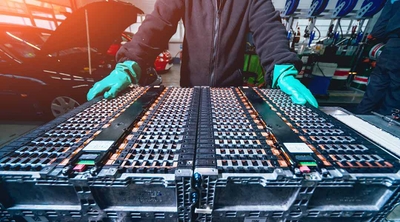EV charger installation
3 min read
When you buy an electric vehicle — whether a plug-in hybrid or a fully electric one — you’ll need a way to charge it, which often means installing an EV charger at home. You can charge an electric car by plugging it into an existing outlet, but that’s not a practical solution because of how long it takes to charge an EV’s battery. Many cities have public charging stations that can charge your vehicle faster, but they might not be near your house or workplace. Installing an EV charger at home allows you to charge when you want without waiting for a spot to open. Learn more about the difference between hybrid vs. electric cars.
Options for EV charging at home
Type 1 chargers
Type 1 chargers are the simplest, least expensive, and slowest. A Type 1 charger is a simple electric cord with a normal plug on one end and a fitting for your EV’s charging port on the other. A home EV charger installation isn’t necessary to use a Type 1 charger. The primary advantage of Type 1 chargers is their portability. You can use them to plug into any standard outlet, so you almost always have a way to charge your vehicle. The drawback is their speed — or lack thereof — since they can take several days to fully charge an EV battery from zero. Installing a Type 1 charging station can save a little time and hassle, but the station won’t charge your car any faster than the cable.
If you have a plug-in hybrid car, a Type 1 charger might be enough. Plug-in hybrid electric vehicle (PHEV) batteries have a much smaller capacity and can often charge overnight at a normal outlet. Owners of electric vehicles with Type 1 chargers can only top off their battery by plugging in overnight. The smaller capacity is limiting compared to hybrids if you need to take longer trips.
Type 2 chargers
You can think of Type 2 chargers as consumer fast chargers. These chargers are higher voltage and need to be hardwired to your electrical system or plugged into larger, 240-volt outlets like those used for dryers and other large appliances and tools. They can charge your battery in a much shorter time — about 10 hours for a full EV and under four hours for a plug-in hybrid — making them a better option for EV charging at home. Depending on how you decide to install your EV charger at home, you can choose either hardwired or portable Type 2 chargers.
Type 3 chargers
Type 3 chargers are commercial fast chargers typically installed in public charging stations. They aren’t usually available as EV chargers for home installation because they draw more power than most residential power grids can handle.
How to install an EV charger at home
Installing a Type 1 charger
Some Type 1 charging stations can be installed by the user. They plug into a wall outlet in your garage or outside your house. If you want to have one hardwired in, you’ll need to call an electrician. Type 1 EV charger installation is easy and inexpensive. Even if you have it hardwired, it’s cost-effective because Type 1 chargers don’t draw more power than other normal consumer appliances.
Installing a Type 2 charger
Type 2 EV charger home installation is more complicated and expensive. First, you’ll need to buy the charging station, and then you’ll likely need to have it installed by a professional. Even if you opt for a portable style, you’ll need to have one put in unless you already have a free 240V outlet in your garage. Depending on local laws and building codes, you may need to request permission and document the changes to your house’s electrical system.
If you – or a previous owner — had a workshop in the garage, it might be worth checking for an existing 240V outlet before you call the electrician. Some power tools like air compressors and welders run on 240V power, so craftspeople and serious DIYers might already have the proper setup.
If you need to upgrade your home’s electric system, you can search for green incentives in your area through the U.S. Department of Energy. These incentives can offset many of the costs associated with electric vehicles. For instance, car insurance for electric cars can cost more than a gas-powered vehicle. Installing a Type 2 charging station at home could qualify for rebates or tax credits for both the unit itself and the installation.
Thinking about buying an EV? Find out if it’s worth it to buy an electric car.




